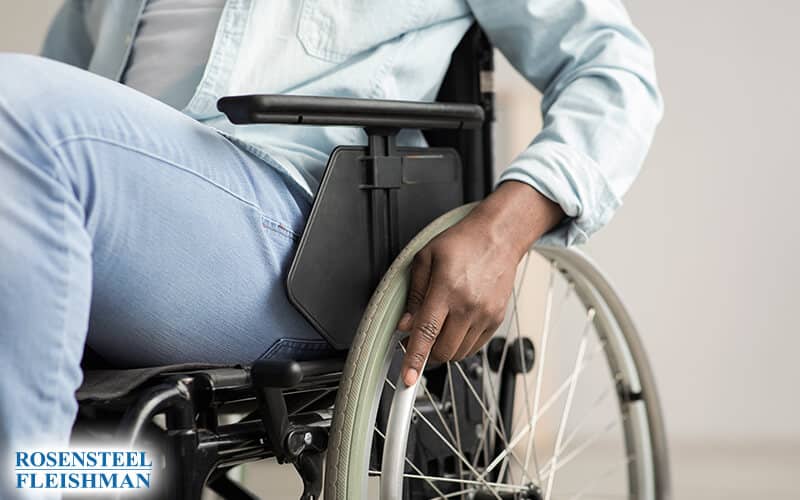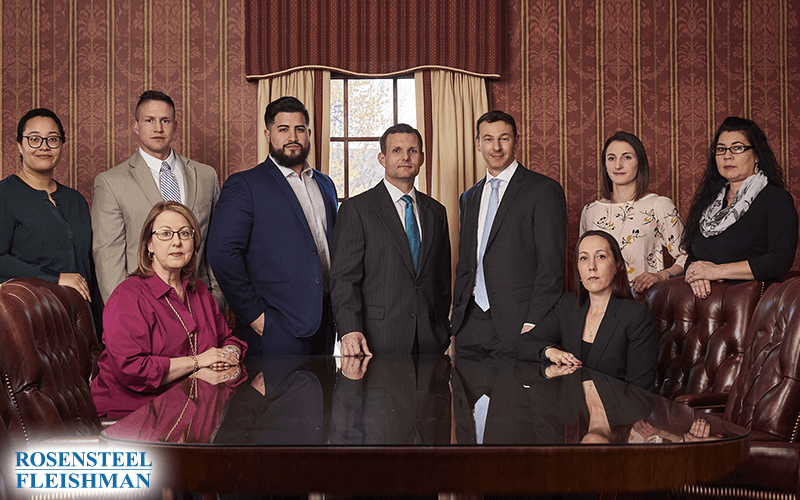Dog bites can be scary and confusing, especially when they happen unexpectedly. One minute you're out for a walk or visiting someone’s home, and the next you’re dealing with a painful injury, medical visits, and the stress of what to do next. These situations often leave people unsure about their rights or how to handle […]

Understanding Personal Injury Law in Charlotte, NC: What You Need to Know
Personal injury law helps protect individuals who have suffered harm as a result of someone else's negligence or intentional actions. If you have been injured or a loved one has been injured or killed due to someone else's actions, understanding the basics of personal injury law in Charlotte, NC is essential for protecting your rights and pursuing the compensation you deserve.
What is Personal Injury?
Personal injury is a legal term used to describe physical or emotional harm suffered by an individual due to someone else's negligence, wrongful conduct, or intentional act. Some common examples of personal injury cases include car accidents, medical malpractice, slip and fall accidents, dog bites, and workplace accidents.
Proof of Negligence
Negligence is a critical concept in personal injury law. Black’s Law Dictionary defines negligence as “[t]he omission to do something which a reasonable man, guided by those considerations which ordinarily regulate the conduct of human affairs, would do. Or doing something which a prudent and reasonable man would not do.” To prove negligence in a personal injury case, the injured party must establish four key elements:
Duty of Care
People or entities have a legal obligation to act in a reasonably safe manner towards others. This includes situations like a property owner maintaining public access areas to be free of tripping hazards and dog owners having control over their pets so that they do not attack a stranger as they walk on the sidewalk.
Breach of Duty
It must be proven that the defendant did not provide duty of care in the situation that caused injury to another. If a property owner knew about a slippery sidewalk, a faulty piece of equipment, or signage that was missing to warn people of potential harm, then they breached their duty towards others.
Causation
It must be shown that the defendant's breach of duty directly caused the plaintiff's injury or harm. You cannot sue someone for something that might have happened in a personal injury lawsuit.
Damages
It must be shown that the plaintiff suffered damages as a result of the injury that was caused by the breach of duty. These damages can be economic, such as medical bills, loss of wages due to an injury, or property damage. They can also be noneconomic to include pain and suffering, loss of enjoyment of life, or personal distress caused by the anxiety and complications of the accident.
In some cases, punitive damages may also be awarded. Punitive damages are not intended to compensate the victim for their losses but to punish the defendant for particularly negligent or malicious conduct and deter others from engaging in similar behavior. Punitive damages are relatively rare in personal injury cases and typically require a higher standard of proof, such as clear and convincing evidence of the defendant's malicious or reckless actions.
Comparative Negligence vs Contributory Negligence
Most states operate under a comparable negligence law. If the victim is partially at fault, then his/her damages will be reduced by the amount to which they are found at fault. So, in a slip and fall accident example, in a state that follows the comparative negligence rule, if the person who fell was distracted on their phone but fell in an area with an unmarked and unsafe walkway, they may be found to be 25% at fault, so his/her damage award would be reduced by 25%. In the case of a $100,000 verdict in the plaintiff’s favor, he/she would only receive $75,000.
North Carolina, however, is one of only a few states that operates under a law of contributory negligence. If a plaintiff is partially at fault, contributory negligence can prevent the plaintiff from recovering any damages. In the slip and fall example above, if the defendant’s lawyers can show that the victim was distracted by something on their phone, the victim may not be entitled to any compensation for any of their injuries under this law. This makes it crucial for injured individuals to consult with an experienced personal injury attorney who can help navigate the complexities of North Carolina's contributory negligence laws.
Statute of Limitations
In NC, personal injury victims have a limited amount of time to file a lawsuit against the responsible party. This time limit, known as the statute of limitations, is generally three years from the date of the injury. However, there are some exceptions to this rule, depending on the specific circumstances of the case. While many accidents have an easily identifiable time and place - an automobile accident or a dog bite, for example, some cases are more complicated and a victim may not realize until a later time that they are injured. Missing this time deadline can result in losing the right to pursue compensation, so it is important to consult with a personal injury attorney as soon as possible after an injury occurs.
Hiring a Personal Injury Attorney
Navigating the complexities of personal injury law in Charlotte, NC, can be challenging without the guidance of an experienced attorney. A skilled personal injury lawyer understands the unique nuances of North Carolina's legal system and can help you gather evidence to support your claim and negotiate with insurance companies on your behalf.
Finding the right personal injury lawyer can be a daunting task, especially when you're already dealing with the aftermath of an accident or injury. Look for an attorney with a successful track record of handling personal injury cases similar to yours. Interview lawyers before choosing someone to represent you in your case. Pay close attention to each attorney's communication style and how well they listen to your concerns. You want a lawyer who is compassionate, understanding, and responsive. You need a lawyer who keeps you informed throughout the process and is responsive to your questions and concerns. Be sure to understand the fee structure for their services. Many personal injury attorneys work on a contingency fee basis, meaning you won't pay any legal fees unless they successfully recover compensation for you.
Understanding the basics of personal injury law in Charlotte, NC is crucial for protecting your rights and pursuing the compensation you deserve after an injury. Hiring an experienced personal injury attorney can make all the difference in the outcome of your case, ensuring that your rights are protected and that you receive the compensation you're entitled to. You can use the chat box on our website for 24/7 access to our dedicated staff, call (704) 714-1450 to make an appointment to speak with someone in our office, or stop by our offices during regular business hours. You will be able to speak directly with one of our local Charlotte personal injury lawyers to discuss your case and decide the best course of action for your unique situation.
Additional Personal Injury Articles
When you're injured in an accident, it can feel like everything in your world shifts. Medical appointments start piling up. Bills arrive before you even leave the hospital. Calls from insurance adjusters don’t stop. On top of the physical pain, there’s the mental toll of trying to make smart decisions when you’re overwhelmed and unsure […]
Recovering from a motorcycle accident can leave you feeling overwhelmed, not just physically but mentally and emotionally. Whether you're dealing with serious injuries, hospital visits, or figuring out how to get your bike fixed, everything feels like it hits you all at once. It’s hard to know where to begin when it comes to protecting […]
After a bike accident, it’s normal to feel shaken, confused, and unsure about what to do next. Many people assume the insurance companies will simply handle everything fairly. But the truth is, insurance adjusters don’t always have your best interests at heart. Whether you're dealing with physical pain, mounting medical bills, or a disrupted daily […]

